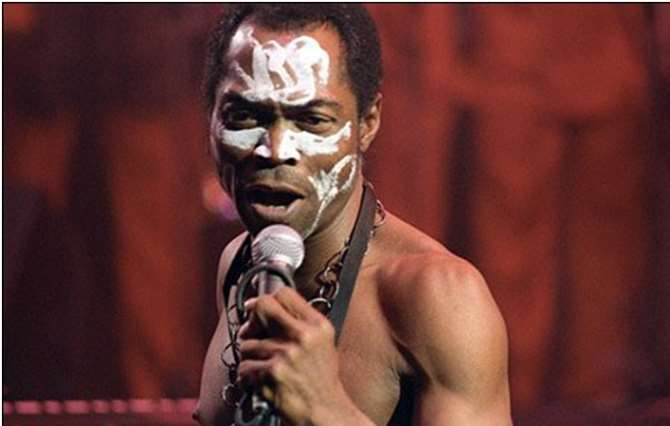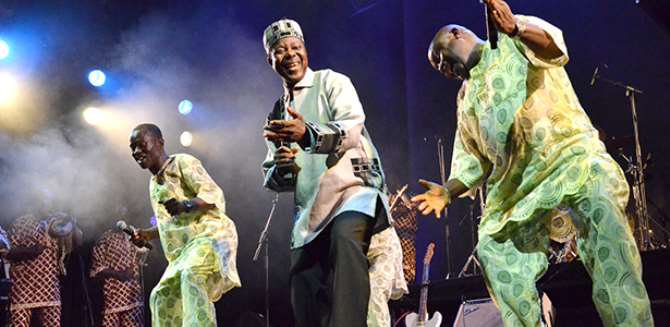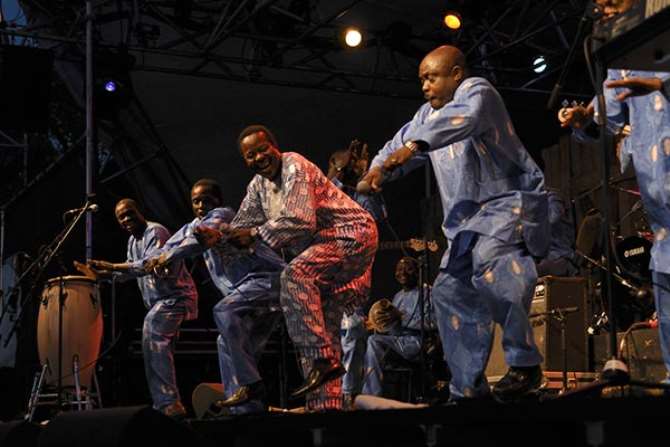5 Indigenous Music Genres to Listen to While in Nigeria
5 Indigenous Music Genres to Listen to While in Nigeria
A visit to Nigeria can expose you to different genres of music, however, the ones that will probably fill the airways of your radio set are hip-hop, R&B, reggae and rap and as a guest, chances are higher that you want to seek invigorating experiences, fresh rhythms, and new sounds. If you want to listen to something more traditional and different from the everyday clang of metal and bass you are bombarded with daily, Jovago.com, Africa’s No 1 hotel booking portal shares five indigenous genres to listen out for while in Nigeria.
Afrobeat
Only one name comes to mind when any discourse on Afrobeat pops up. That is Fela Anikulapo Kuti. He was the one who popularized this genre of music as he churned out a medley of songs that addressed societal issues and the military government. Fela could even perform on stage for hours non-stop.
Afrobeat came to the consciousness of Nigerians in the 1970s as artists joyfully concocted traditional Yoruba music with jazz, West African highlife, and funk. If you want to enjoy the best of Afrobeat, visit the Afrika Shrine at Central Business District, Ikeja.
Igbo highlife
This class of music is proudly owned by the Igbos of Eastern Nigeria . The genre combines the soulful strings of highlife with Igbo traditional music. With a standing microphone, a guitar in hand and backup singers, the lead singer in very melodic tones dish out songs in Igbo or pidgin English to entertain teeming fans. The story of highlife in Nigeria is incomplete without mentioning the contributions of Chief Stephen Osita Osadebe. He was music personified. Other highlife greats are Oliver De Coque, Orlando Owoh, and Jim Rex Lawson among others.
Juju
Juju was popularized by the ever energetic and unflappable King Sunny Ade. His thrilling dance steps, the rhythmic tunes from the percussionists and his voice will get you hooked on Juju. Ebenezer Obe also contributed his quota to the growth of Juju music. In the interim, Shina Peters took it one step higher by blending it with African tunes to produce Afrojuju. These songs are worth listening to. Before it became well known, it was pioneered by musicians like Fatai Rolling Dollars, Tunde Nightingale, and I.K. Dairo.
Apala
Before Apala became popular amongst the Yorubas of Southwest , Nigeria, it was strictly a religious song used to arouse fasting Muslims during Ramadan. As time went by, it shed its religious toga and became a general form of entertainment. It was developed in the late 1930s and early 1940s in Ijebuland in Ogun state. The main instruments in apala are talking drums, shekere rattle, agogo bell, agidigbo, and a thumb piano often played by the lead singer. Popular Apala musicians include Haruna Ishola and Ayinla Omowura.
Fuji
Fuji is an offshoot of Apala music. Alhaji Sikiru Barrister led the pack in the 1960s while Alhaji Wasiu Ayinde Marshall, Pasuma Wonder, Saheed Osupa, Obesere, Adewale Ayuba, and Malaika among others made it widely known. They mostly sing in Yoruba language but it is no doubt danceable.




